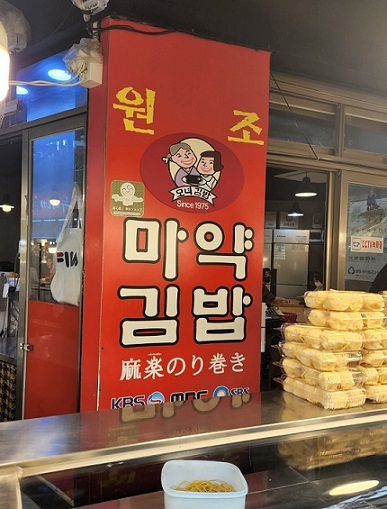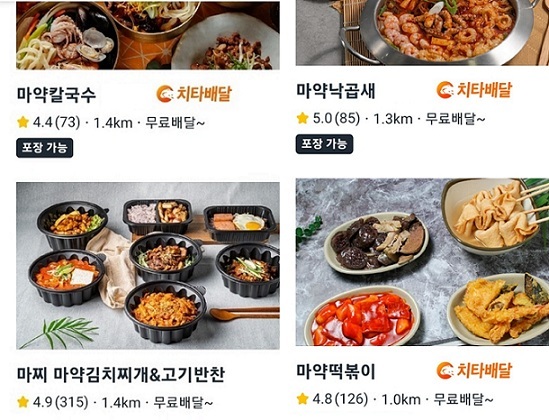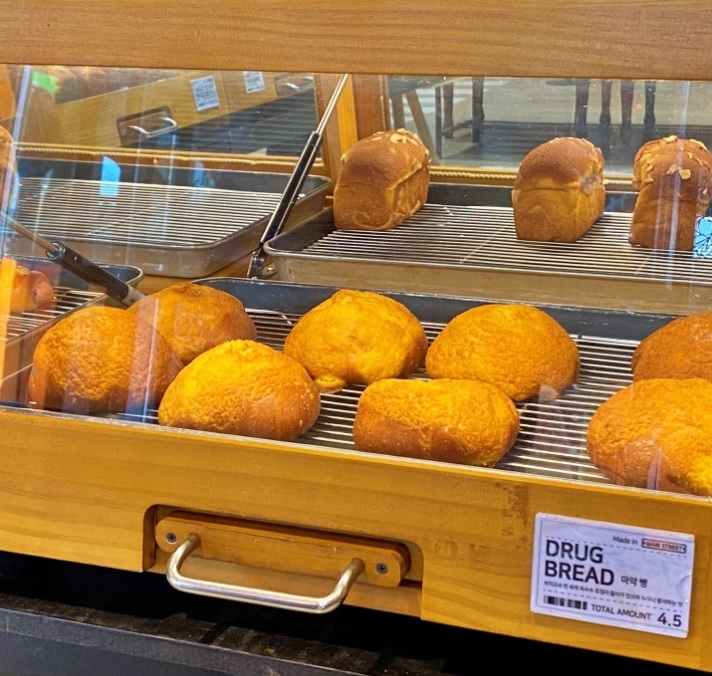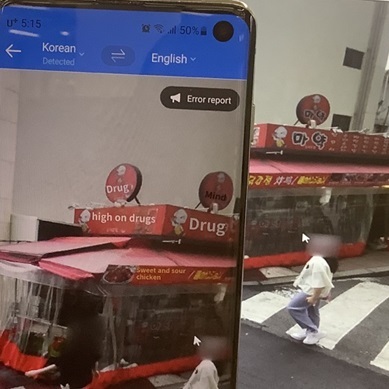As tasty as narcotics?
Why Koreans like to use reference to drugs when food is so good
By Choi Jae-heePublished : June 16, 2022 - 17:50

Korea is known as a relatively drug-free nation, where most people have no experience whatsoever of drugs. But when 31-year-old David from Canada recently browsed restaurant menus on a local food delivery app, he couldn’t help but wonder: Do people know what narcotics are actually like?
From kimchi jjigae (kimchi stew), kalguksu (knife-cut wheat flour noodles) to tteokbokki (spicy rice cake), a variety of food and beverage items were being sold with a reference to “mayak,” which means drugs or narcotics in Korean.

“I ordered the so-called ‘mayak corn’ from a pizza shop. The sweet and buttery grilled corn was sprinkled with a bunch of snowy white cheese powder, which conjures up the image of cocaine.”
David’s observation is half right. There seems to be a significant rise in recent years in Koreans’ references to drugs when discussing food. But it doesn’t suggest that the said food tastes or looks similar to real narcotics.
It is meant to be a general compliment, equivalent to “irresistible” or “addictive” in English.
Playing a major role in the proliferation of the Korean expression is “mayak gimbap” from Gwangjang traditional market in central Seoul. Unlike conventional gimbap, which has a variety of fillings inside a seaweed rice roll, mayak gimbap has minimal ingredients paired with a hot mustard sauce. Gwangjang market even has a street dedicated to stalls offering them.
A 55-year old man surnamed Yoo, who runs a stall called Monyeo Gimbap in the market, said: “The name (mayak gimbap) comes from the mini gimbap’s reputation for being addictive. A number of foreign customers found the name interesting and asked its meaning.”
Why narcotics?
But why the reference to narcotics? There are many other addictive things, like alcohol.
Lee Eun-hee, a professor at Inha University‘s College of Social Sciences, has a theory to explain that.
Drugs in Korea are something of a taboo, far removed from daily conversations. So when the word pops up, it instantly sparks curiosity.
Stimulating customers’ imaginations is one of the basic principles of marketing and branding, the expert said.
“Ordinary people never know what it is like to become addicted to drugs. They only have stereotypical images of drug users portrayed by the media.
So, menu items that are named ‘mayak’ are interesting enough to raise their expectations,” Lee said.
Some say the widespread use of the expression reveals a lack of consideration to the negative connotation of drugs.
“Anything around addiction is not an issue that is typically taken lightly. In the US, some advertising might use ‘crack’ to achieve the same effect, but it likely wouldn’t be viewed favorably,” pointed out Dean Comeau, a 49-year-old freelance copywriter who currently works in Seoul.

A 47-year-old woman surnamed Seo who is a mother of a middle schooler living in Seodamun-gu, Seoul, shared the concern.
She was startled when her child said “I took drugs,” after eating “mayak tteokbokki” sold by a street vendor.
“I’m concerned that children could become desensitized to drug issues. Some might think I am overreacting, but the frequent use of the word ‘mayak’ could trigger people’s curiosity about drugs.”

In fact, drug-related crimes are no longer an issue in some Western countries. According to data from the Supreme Prosecutors Office released on May 8, a total of 16,153 Koreans were arrested for drug use throughout last year. About 30 percent, or 5,077, of them were in their 20s. The number of offenders in their 20s was up by almost 60 percent from the previous year.
“Drug offenders are gradually getting younger. There is a need for action to prevent the use of the term in food advertisements and marketing,” said Kim Jong-hwan, president of the Seoul office of the Korean Association Against Drug Abuse.
Currently, local businesses are not allowed to use the term ‘mayak’ in their trademarks, but this regulation doesn’t apply to the names of shop or food, according to the Korean Intellectual Property Office.
By Choi Jae-hee (cjh@heraldcorp.com)







![[Graphic News] More Koreans say they plan long-distance trips this year](http://res.heraldm.com/phpwas/restmb_idxmake.php?idx=644&simg=/content/image/2024/04/17/20240417050828_0.gif&u=)
![[KH Explains] Hyundai's full hybrid edge to pay off amid slow transition to pure EVs](http://res.heraldm.com/phpwas/restmb_idxmake.php?idx=644&simg=/content/image/2024/04/18/20240418050645_0.jpg&u=20240419100350)






![[From the Scene] Monks, Buddhists hail return of remains of Buddhas](http://res.heraldm.com/phpwas/restmb_idxmake.php?idx=652&simg=/content/image/2024/04/19/20240419050617_0.jpg&u=20240419175937)

![[KH Explains] Hyundai's full hybrid edge to pay off amid slow transition to pure EVs](http://res.heraldm.com/phpwas/restmb_idxmake.php?idx=652&simg=/content/image/2024/04/18/20240418050645_0.jpg&u=20240419100350)

![[Today’s K-pop] Illit drops debut single remix](http://res.heraldm.com/phpwas/restmb_idxmake.php?idx=642&simg=/content/image/2024/04/19/20240419050612_0.jpg&u=)